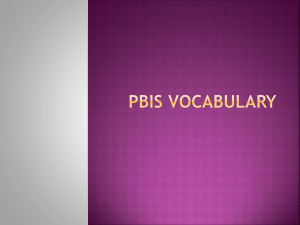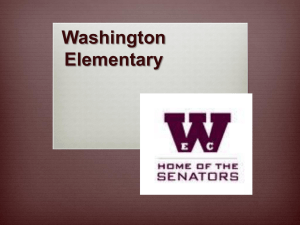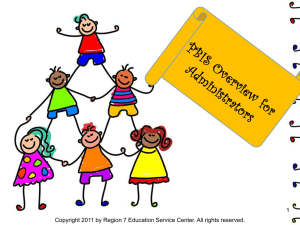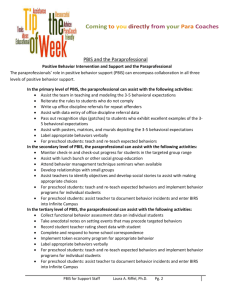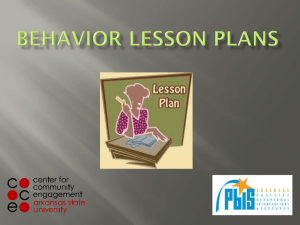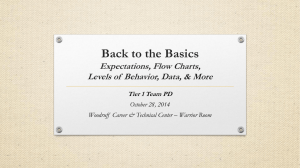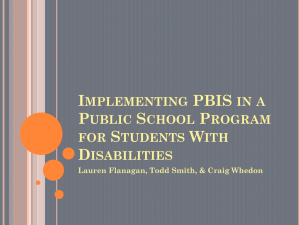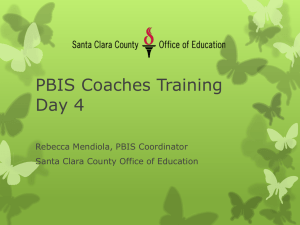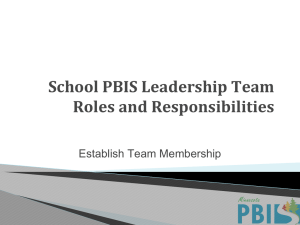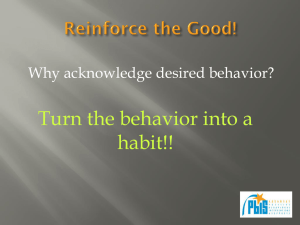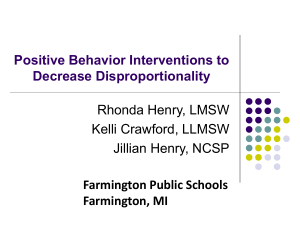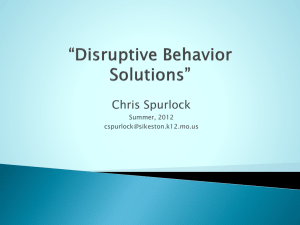Overview - PBIS Maryland Home
advertisement
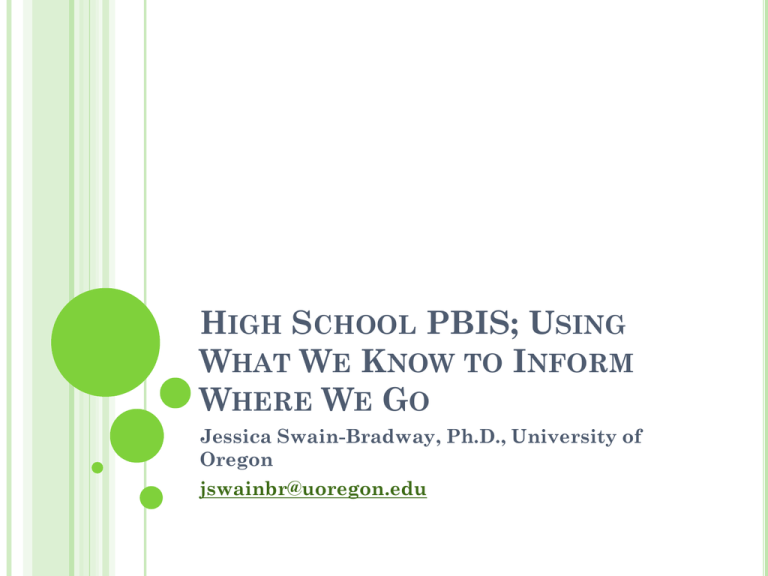
HIGH SCHOOL PBIS; USING WHAT WE KNOW TO INFORM WHERE WE GO Jessica Swain-Bradway, Ph.D., University of Oregon jswainbr@uoregon.edu AGENDA Excitement! Adolescent brain development Big messages from PBIS at the High School Level NEUROSCIENCE Can provide the technology for understanding brain functioning and development during adolescence Timerlake, Schaal, Steinmetz, 2005 DEVELOPMENT OVER TIME EMOTIONAL RESPONDING EMOTIONAL RECOGNITION Monk et al (2003) REWARDS CENTER REWARDS CENTER Early adolescent show fewer reward signals in the brain to stimuli. The intensity of rewards must be higher for early adolescents to feel rewarded (Sprague, 2008). WHITE MATTER ADOLESCENT BRAIN DEVELOPMENT Physiological and functional differences on cognition Amygdala Emotional recognition Rewards center White matter NEUROPLASTICITY “… neuroanatomical evidence suggests that learning and positive experiences help build complex, adaptive brains”. The Adolescent Brain: A Work in Progress, Daniel R.Weinberger, M.D., Brita Elvevåg, Ph.D, Jay N. Giedd, M.D., June 2005 NEUROPLASTICITY Environmental supports: Explicitness in instruction Explicitness in acknowledgements Exaggerated supports around decision-making, responsibility CONSIDER BRAIN DEVELOPMENT AND PBIS AT HIGH SCHOOL BIG MESSAGES FROM PBIS AT HS Systems First Feedback Loop Academic and Social Connection Stakeholder Input SYSTEMS: PBIS FLUENCY 1. Administrative team fluency in PBIS Understand systems perspective Outcomes, Data, Systems, Practices Understand critical features for implementation and sustainability SYSTEMS: PBIS FLUENCY 2. Implementation team fluency Understand systems perspective Outcomes, Data, Systems, Practices 3. Roles within each component Staff-wide training prior to roll out of practices SYSTEMS Communication System Feedback loop Staff Students Families Community Contextual Considerations… ACADEMIC & SOCIAL CONNECTION Explicitness of connection Implementation of evidence based practices focuses on: Social behaviors impact academic behaviors Academic behaviors impact social behaviors Social behaviors that provide access to academic success Explicit language, skill building, supports around access CICO, Academic Supports, Acknowledgements, Social Expectations, Discipline system, etc. COMMUNITY, FAMILY FEEDBACK Top down big picture Administrative and PBIS teams fluent in PBIS Bottom up contextual considerations Feedback loop New York City Can Falls NEUROSCIENCE AND PBIS Neuroscience provides direction Systems Framework of PBIS provides mechanism RESOURCES Nature Reviews Neuroscience Society for Neuroscience NIHM: Teenage Brain www.PBIS.org Thank you for your time and attention! jswainbr@uoregon.edu
